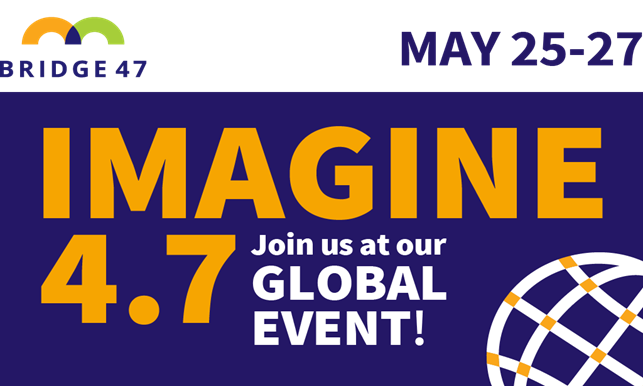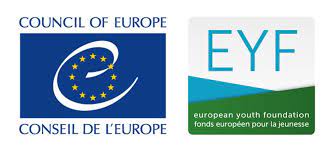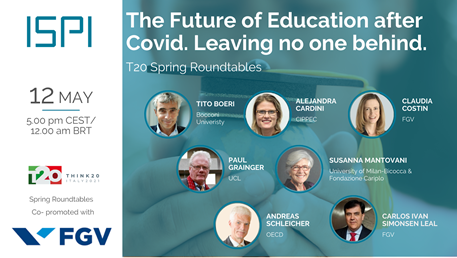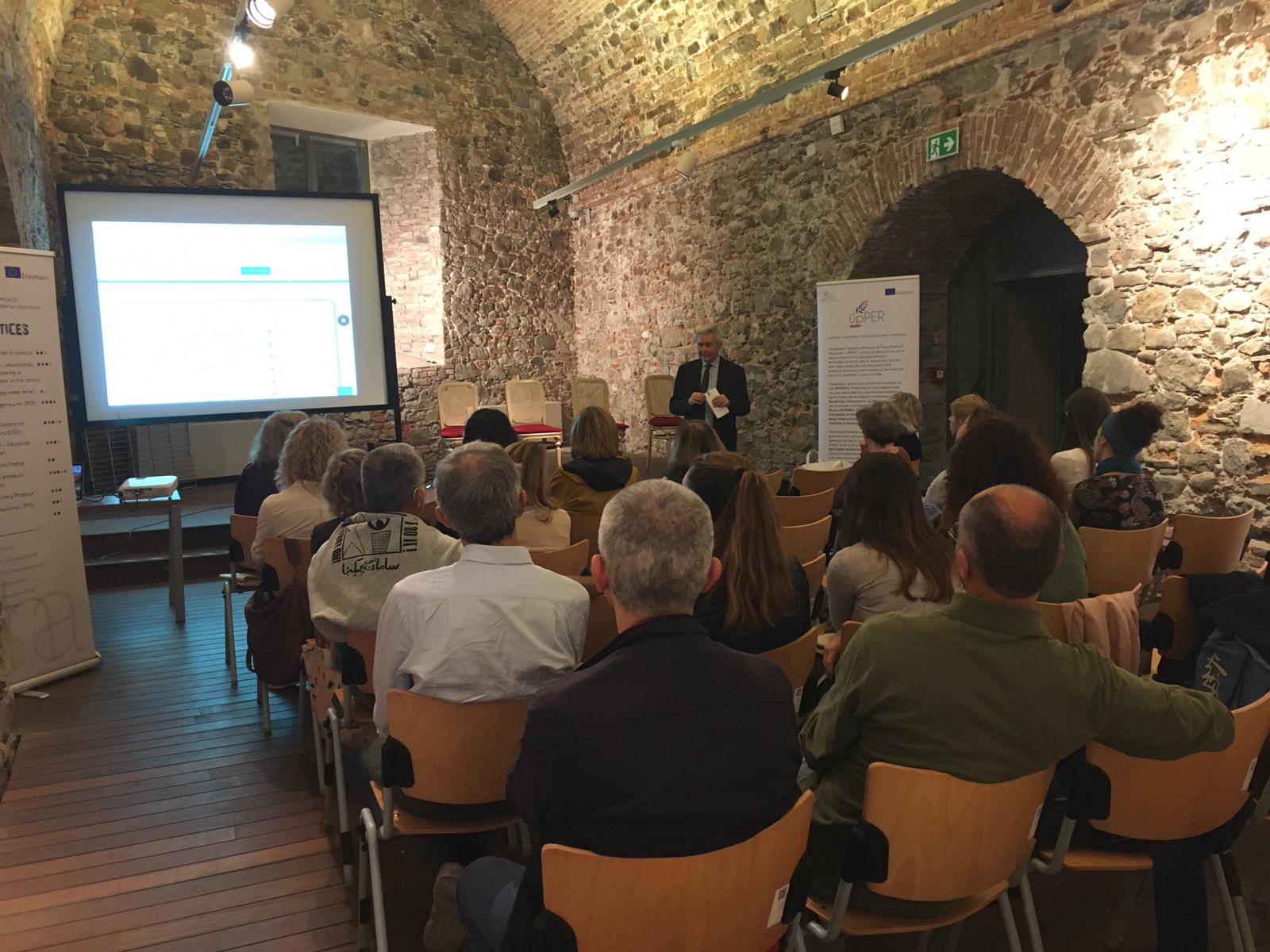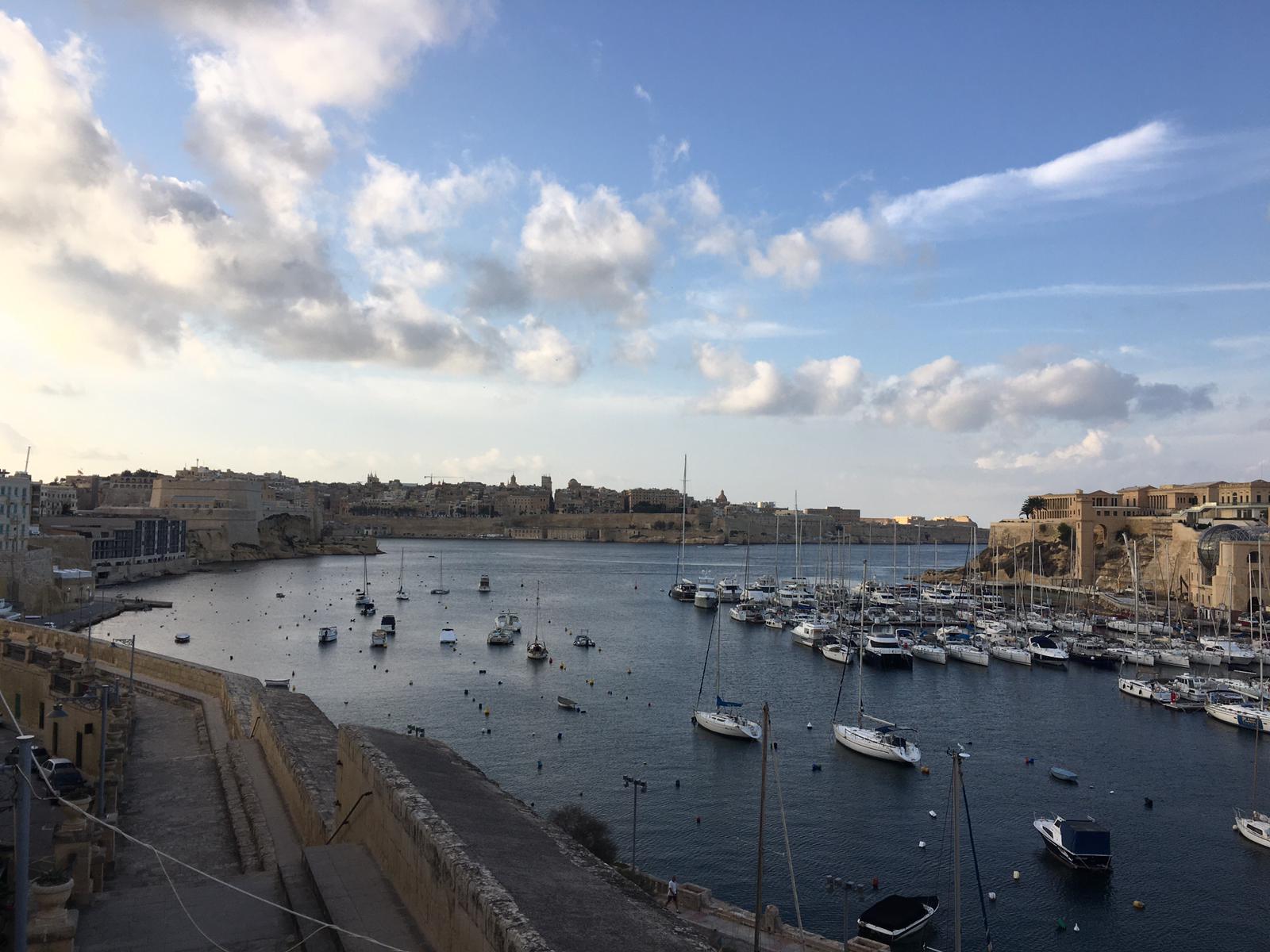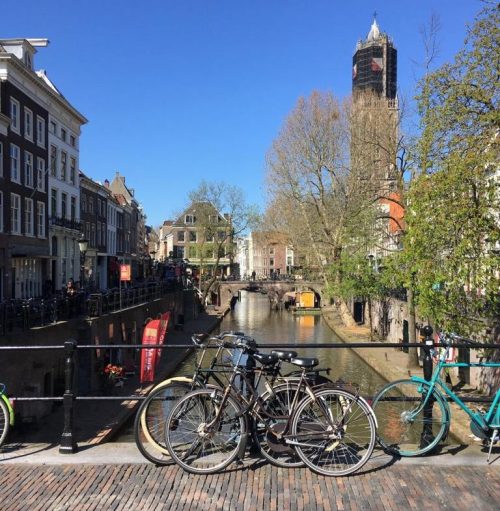Vote for CITIZED on NECE CAMPUS 2021!
The project “Policy implementation support and teacher empowerment for CITIZenship Education – CITIZED” is among the candidates of the Call for Projects organised by the Networking European Citizenship Education platform (NECE). NECE is a transnational community of stakeholders and practitioners (formal, non-formal and informal education) of citizenship education (CE) from across Europe.
Every year, NECE organises the NECE CAMPUS, a series of events to promote the exchange between educators, experts and civil society on citizenship education. In addition to conferences and lectures, different organisations get the opportunity to present their projects on citizenship education in the form of online trainings, workshops, lectures, or Pecha Kuchas.
If you want to give CITIZED the possibility to be presented at the NECE CAMPUS 2021 (vote for it at this link by clicking on the heart symbol!
Deadline is Monday, 07th June 2021!
Bridge 47 – Global Event “Imagine 4.7”
From Tuesday 25th May to Thursday 27th May, the Bridge 47 Network will organise the “Imagine 4.7 Global Event” online conference. The event, a three-days webinar, will bring together different professionals wokring in the field of transformative learning and SDG Target 4.7. Throughout the event, many initiatives, conferences and workshop will take place, tackling relevant issues concerning transformative learning: Sustainability, Global Education and Glocal Citizenship Education.
Find out more about Bridge 47 Network’s webinar here.
Council of Europe – Education and Training
The European Youth Foundation, a fund established in 1972 by the Council of Europe with the aim of financially and educationally supporting European youth activities, promotes activities in line with the values and work of the Council of Europe.
The calendar of education and training activities in the 2021 Youth for Democracy programme is accessible at the following link: https://www.coe.int/en/web/youth/calendar-of-activities.
CoE set of COVID-19-related learning activities were released
“The COVID-19 pandemic has had a major impact on the education of young people. There has been a significant loss of teaching and learning time, the continuity of learning has been severely disrupted, and there are likely to be long-term impacts on learners’ educational outcomes. Everyday life during the pandemic has also raised some serious challenges for educators and young people alike.”
This is the reason why the Council of Europe has developed a set of learning activities that may be used in schools, practices based directly on the challenges raised by the COVID-19 pandemic. All the reported activities are related to one or more of the six themes of the Democratic Schools Network.
For more information, we invite you to visit the CoE’s dedicated webpage here.
Council of Europe RFCDC Teacher Self-Reflection Tool piloting phase is still on, do not miss it!
The piloting of the RFCDC Teacher Self-Reflection Tool will last until 29 May 2020, do not miss the opportunity to take part to it!
The Teacher Self-Reflection Tool aims at supporting teachers and student teachers in developing their democratic professional ethos and competences. It will offer them guidance throughout this process and in their work with the Council of Europe Reference Framework of Competences for Democratic Culture (RFCDC). It can be used as a starter for getting acquainted with the Framework but can also be seen as a very general accompaniment to self-reflection on teaching and democratic competences.
The Council of Europe Education Department invites teachers, teacher trainers and teacher students to take part in this piloting. If you are interested, do not miss this opportunity and fill in the questionnaire now.
For more information on the RFCDC Teacher self-reflection tool, please visit the official CoE website here.
Education Inspiring Peace Lab and FREREF Day
On 22nd October, the Education Inspiring Peace Laboratory (EIP Lab) was officially presented in Italy at Forte di Santa Tecla in Sanremo.
The presentation of the Laboratory was part of a wider initiative named “Ottobre di pace”, a one-month event review, which this year celebrates its 14th edition, focusing on subjects related to the promotion of a peace culture and intercultural dialogue. The presentation of the EIP Lab was led by the International Institute of Humanitarian Law with the contribution of the Sanremo Municipality, represented by two councillors.
The EIP Lab is a spin-off of the “systemic UPscaling of Peace Education pRactices – UPPER”, developed and realized within the framework of the EU ERASMUS+ Programme, which main objective is to contribute to bringing peace, intercultural dialogue and civic participation to the core of education policy and school practice.
The Lab aims at carrying out research, training of teachers and educators, analysis and providing support in formulating education and cultural policies at different institutional levels. It will engage also in conveying the values, principles and the results of its research work, in making available methodological instruments and guidance for schools and cultural institutions, as well as linking up with other similar initiatives worldwide. Among its core instruments, the Lab offers a database of good practices, a self-evaluation questionnaire in the field of peace education for educators (thus approaching the assessment from both an individual and a “systemic” perspective), and an international benchmarking system related to peace education standards.
As from 2020, the Lab is expected to develop training activities in Sanremo for professionals, directed primarily to teacher trainers, as well as workshops and conferences to foster the exchange of experiences among the different stakeholders from the educational environment.
18th November 2019 SAVE THE DATE!
The International Institute of Humanitarian Law Institute will be hosting the FREREF day, the annual conference of the Fondation des Régions Européennes pour la Recherche, l’Éducation et la Formation (FREREF). The conference will focus on the issue “An Active European Citizenship to Build Peace” and will also throw light on the EIP Lab itself.
More information on the FREREF day is available here.
Download the agenda here.
To register for the event, please fill the form here.
UPPER project “lands” in Malta
The fourth UPPER project meeting and the second multiplier event were organised from 14 to 15 October by the Maltese Ministry for Education and Employment (MEDE) at congress centre of Hotel Excelsior in Floriana, Malta.

During the meeting, all the deliverables developed by the project partners were analysed and further discussed, in view of the launch of the UPPER piloting phase in schools.
After the opening session the project and the partnership, were presented to teachers and students of one of the Maltese pilot schools directed by the Migrant Learners’ Unit, a section of the Maltese Ministry for Education and Employment (MEDE) dedicated to pupils, coming from non-English-speaking countries, who need to be acquainted with both English and Maltese languages in order to get ordinary access to the Maltese school system. This interesting and fruitful onsite visit was followed, during the afternoon, by a final session focused on designing the structure of the second UPPER multiplier event on the following day.

The multiplier event was opened on the morning of 15th October by David Degabriele of the the MEDE, who addressed the value of the UPPER project from the institutional perspective. Subsequently, participants were introduced to the project by all the other partners, through a detailed description of its different outcomes and supported by a guided tour on the EIP Laboratory website.
Finally, three thematic workshops were organised, followed by a plenary session and a final round table which included experts in the field of peace education. This debate was aimed at sharing some crucial aspects related to peace education which could have might inspire peace in the youngest generations.
UPPER Project Meeting in Utrecht
Utrecht (The Netherlands), 11-12 April 2019
In April, the third Project Meeting of the UPPER Project was organised by the European School Head Association at its premises, in the Netherlands. Many of the instruments structured by the UPPER partnership were revised, discussed and improved during the meeting, taking advantage of open debates and interactive workshops.
Sessions included activities regarding the integration of the draft version of the Peace Educators’ Competences Framework, which was analysed by the team in its most crucial sections, the further development of the innovative Benchmarking System for educational institutions, and, finally, the delineation of some general outlines for the future design of the Peace Education Handbook.
A few external contributors, most of them educational professionals and experts in the field of formal and/or informal education, were also invited to participate in the work on 12 April. As expected, their presence provided precious independent inputs for the future development of the project.


